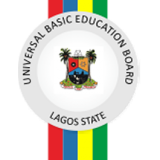Yesterday was World Children’s Day. Unlike the Children’s Day celebration observed in Nigeria on May 29th every year, World Children’s Day is marked every November 20 as an international observance that United Nations member countries use to promote and celebrate children’s rights. Established by the UN in 1954, the theme of this year’s celebration, ‘Equality and Inclusion, for every child’, is particularly instructive for Nigerian children who suffer discrimination and exclusion.
UK-based NGO, Save the Children disclosed in its 2021 Global Childhood Report that Nigeria remains one of the most challenging places to be a child. The country ranks below conflict-ridden Yemen and Syria due to poverty, lack of schools, insecurity and tradition. Nigeria’s number of out-of-school children is also disproportionately high, with child labour and begging rife. It’s common to see children who are supposed to be in school hawking sachet water, plantain chips, sausage and drinks in traffic across the country. Some creatively try to make money by cleaning vehicles’ windscreens in traffic. Others beg for alms alongside their parents, while some are apprentices with various artisans.
If all these are not enough cause for worry about the plight of Nigerian children, UNESCO’s recent disclosure that the country now has 20 million out-of-school children has further underscored the problem’s magnitude. It is why all hands have to be on deck to save Nigeria’s underserved and under-represented children, including the female ones who get the short end of the stick.
Nigerian female children face unprecedented challenges to their education, physical and mental wellness, and the protections needed for a life without violence. The odds are stacked against young girls, with 63 million between ages 6-15 out of school while 16 million aged 6-11 never enroll into school. While child marriage is rife in the north, some parents in the south believe educating female children is not worth the investment. The Nigerian government and states should start paying more attention to the theme, ‘Equality and Inclusion for every child,’ to ensure a better future for the children and the country. The rich and poor, girls and boys, must have equal access to education and a good life. There must be no exclusion.
Commendably, this is what the Lagos State Government is doing with Governor Babajide Sanwo-Olu at the helm. In his quest to give Lagos pupils education relevant to the 21st century and accessible to all, he inaugurated the EKOEXCEL programme under the supervision of the Lagos State Universal Basic Education Board (LASUBEB) in 2019.
Using innovative digital learning solutions with support from its ed-tech partner, New Globe, the initiative has led to a radical transformation of public primary schools in the state. EKOEXCEL has recorded tangible gains among teachers and pupils, leading to improved learning outcomes for pupils and more professional teachers. The aggressive drive to take children of school age off the streets under regular mobilisations and the effective Project Zero Initiative is also helping to ensure education for all.
Lagos has also prioritised girl-child education with various measures to ensure equitable learning like their male counterparts. For instance, professional development and classroom management techniques focus on encouraging girls to be leaders in and out of the classroom. EKOECEL also ensures gender equality outside the school by encouraging girls to practice leadership skills through participation in various co-curricular activities like drama, chess, the arts, and physical education. They are encouraged to engage in sports like athletics, ball games, and taekwondo which typically have less female participation.
“One of the game-changers in the education development plan of our administration is the EKOEXCEL programme designed to support teachers to achieve better learning outcomes across all our public primary schools”. Indeed, EKOEXCEL has recorded milestones that parents and teachers acknowledge. The initiator, Governor Sanwo-Olu, is also happy with the progress. “The EKOEXCEL 2020-2021 End line Fluency and Numeracy Evaluation has further justified the huge investment and affirmed the strategic interventions and impacts,” he said recently.
At the just concluded National Common Entrance Examinations, a total number of seventy-one thousand, seven hundred and thirty-eight (71,738) pupils registered, with 34,030 being males and 37,708 being females.
While the overall best student in the NCEE conducted by the National Examinations Council (NECO) scored 201 out of 210, Ajidagba Mariam Akanke, three pupils of Lagos public primary schools were just five points behind her.
The third best pupil from Lagos state public primary school was Deborah Ugbaha of St. George’s Girls primary school who scored 196 out of 210.
Even though Ugbaha came third, she was first in the In-school mock examinations, including End of Term One and Two Examinations the Term One Mock Examinations. Her outstanding performance also attests to the efficacy of EKOEXCEL’s methodology in fostering inclusion for every child.
A compelling case of inclusion in Lagos State public primary schools is the case of a teen boy called Segun Borno, who was saved from the rigours of hawking perishable goods on the streets of Lagos by LASUBEB at one of its pupil enrollment road shows.
The timid boy expressed interest in going to school and was immediately enrolled into Adeife Primary School, Bariga, at no cost. Courtesy of Project Zero, a public private partner initiative to fund education for out-of-school children also overseen by LASUBEB. Everything Segun needed from sandals, school bag, uniform and textbooks- were provided for him, to encourage him to remain in school and not be a financial burden to his parents.
In a seminal study released earlier this year, 2019 Nobel Prize-winning economist Professor Michael Kremer found that the methodology underpinning EKOEXCEL, is having significant impacts. Professor Kremer detailed how pupils tutored with EKOEXCEL’s methodology gain almost an additional year of learning (0.89), learning in two years what their peers in traditional schools learn in nearly three.
The findings in Professor Kremer’s study put the learning gains in the top 1% of learning gains ever rigorously studied at scale in low and middle-income countries. For early childhood development (ECD), the gains were even bigger. ECD pupils using the same methodology as EKOEXCEL gained almost an additional year and a half of learning (1.48). They learned in two years what students in other schools learn in three and a half years.
The instructional method involving classroom cheers and other activities has also helped retain pupils in school as learning has become more fun, again, fostering inclusiveness in schools.
Ahead of the next World Children’s Day, parents, government and all others in the education value chain need to do more. They should do their best to ensure no child is left behind. They are our future and deserve the best.
Thorpe, a child development and education consultant, writes from Lagos.


